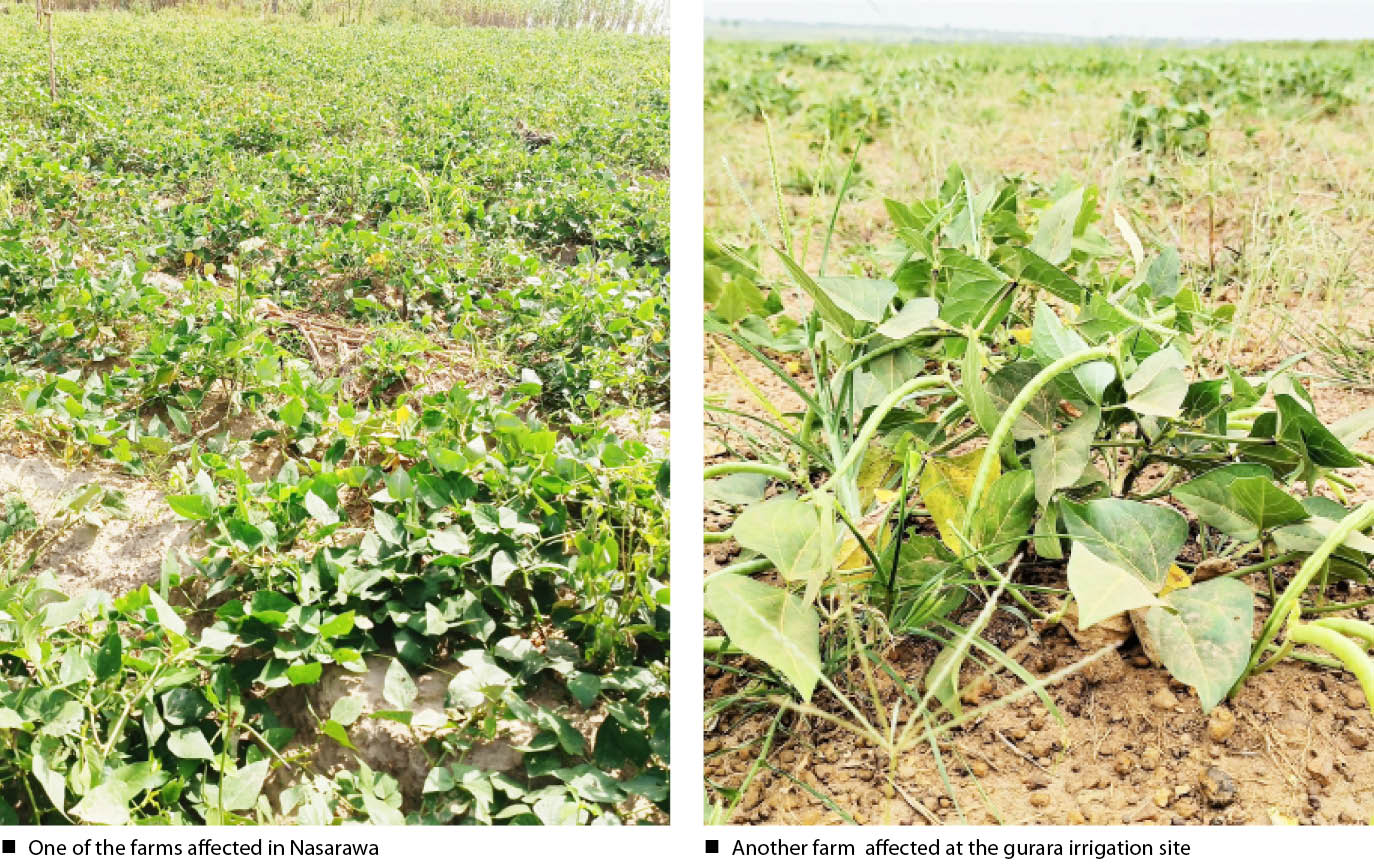Bean (cowpea) farmers in some states are worried as the sudden cessation of rain and absence of moisture dims their hope for a good harvest this year.
Heavy rainfall this season pushed many farmers to plant beans in September, but with the rain stopping suddenly in late October, many farmers are now caught up with the crop at the flowering stage.
12m farmers to partner 3 banks on financing
Shell offers N36m grant to 8 Nigerian renewable energy firms
Even the early maturing seed varieties need at least 60 days to mature.
Daily Trust reporter, who visited some places in Nasarawa and the FCT, saw many bean farms drying up and those that still had fresh leaves producing little or no pods.
Many of the farmers spoken to said they thought the rain might end by mid-November, ignoring the warning earlier issued by the country’s meteorological agency, NiMet.
Some of them, however, said they did not understand the weather prediction to make the necessary decisions, while others said the forecast was not presented in the language they understood.
“The way the rain fell this year, I thought it would reach November. I wanted to plant in early August, but the rain was so heavy so I decided to wait a little. In fact, I planted in September; I can’t remember the actual date.
“Now the rain suddenly stopped when the beans is flowering, and this land is not the type that retains moisture, and the crop started withering two weeks after,” Ayuba Shekwo said.
He had planted two farms in the Gora and Uke communities of Karu, in Nasarawa State, but has now lost hope of picking anything significant this year from the farms he was able to harvest 600kg last season.
“I put a lot of money into the farms; the chemicals, the labourers and the seeds are all lost now. I won’t make that mistake next year,” he said.
Meanwhile, many farmers along the Bwari-Jere road and those who planted at the abandoned Gurara irrigation project site, are facing the same problem.
Many farms are withering away as the rain has ceased and there is no moisture to support the legumes’ growth.
“I was thinking we may still have some light rain up to the first week of November, which the beans like. You know it doesn’t need heavy rain, but it just suddenly stopped and there is nothing we can do,” Malam Sani Audu told this reporter at Jere Junction near the Gurara irrigation site.
Although farmers were seen in some of the farms visited, the situation was largely the same in the areas visited.
It could be recalled that a month ago, Daily Trust reported that farmers in Katsina State were still planting beans, prompting experts like Umar Abdullahi, an agricultural expert and cowpea farmer, to caution farmers against late planting of beans despite the abundance of rainfall this year.
He said most varieties of beans require at least 75 to 90 days of good moisture to flourish, adding that planting in late September is risky because rainfall usually ceases in October, therefore, planting it at that time meant the beans would require rain up to the end of November.
Abdullahi said he thought “It is true that bean plants have shallow roots, and when they get too saturated, they get rotten, but that does not mean they do not require enough moisture to blossom.”
For many who planted late in some of these places, the loss is real today.

 Join Daily Trust WhatsApp Community For Quick Access To News and Happenings Around You.
Join Daily Trust WhatsApp Community For Quick Access To News and Happenings Around You.